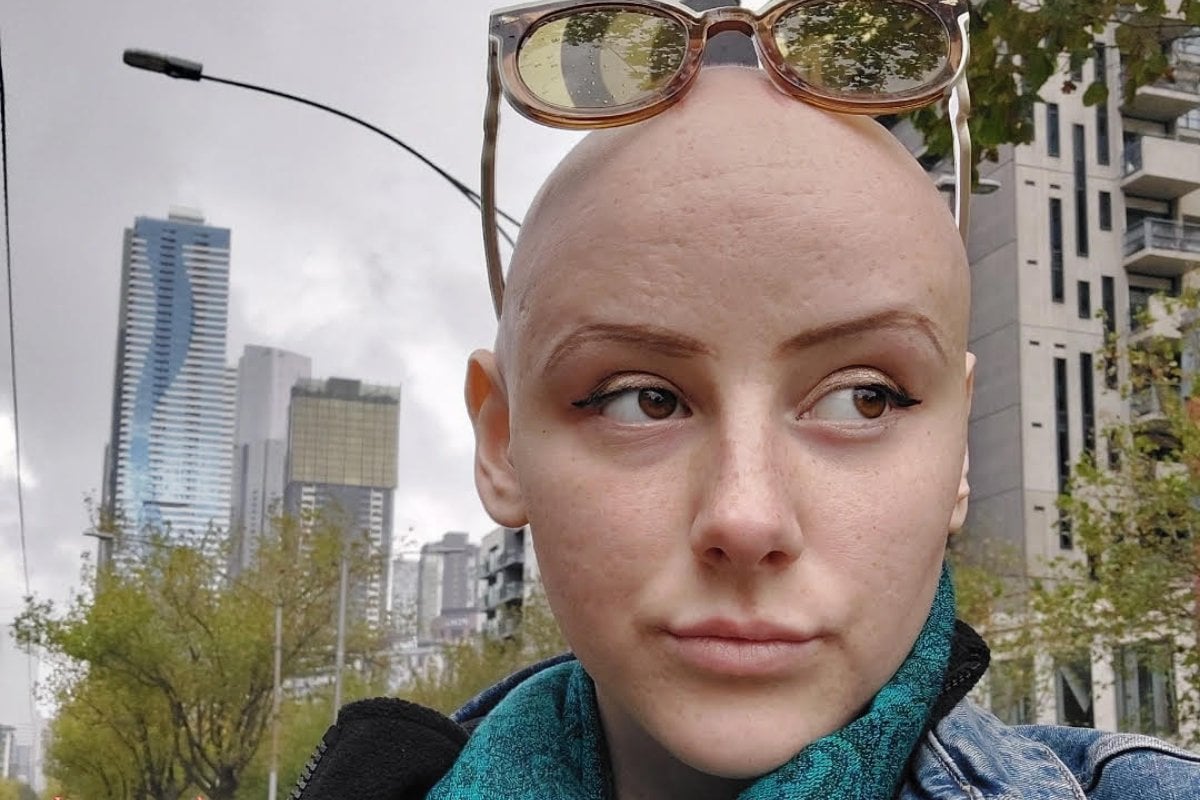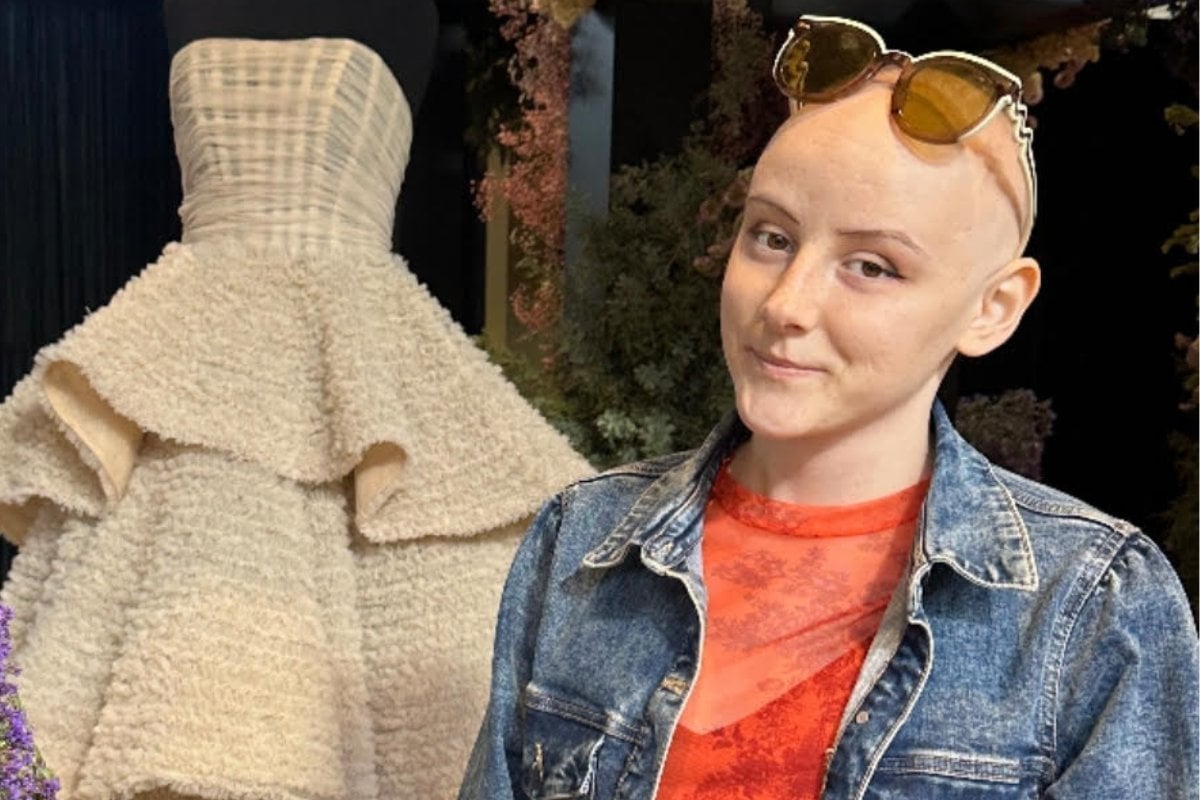
Madison Purkis isn't the only patient — particularly female patient — to have her pain ignored. And ultimately, when this happens, the consequences can be life-threatening.
"Here in Australia we have an amazing public health system, but you need a doctor to listen to you and diagnose you to have access to any of that. I was told my pain was all in my head," she tells Mamamia.
Watch In Her Shoes: Lea's cancer story. Post continues below.
While studying at university and living on campus in Canberra in March 2022, Madison felt like something wasn't right with her health.
"It was mind-piercing pain. Every few months I would have these week-long episodes of the most insane back pain. It limited my ability to work and study," she notes.
The bout of serious pain had also coincided with "quite a traumatic event" in Madison's life.
"When I went to doctors for health advice, they immediately chalked it up to being related to the traumatic incident that I had just incurred. They assumed it was the result of PTSD. I begged doctors and physios for help only to be told that what I was experiencing was psychosomatic. I was put on a nine-month waiting list to see a psychologist and sent home with a Valium prescription.





























































































